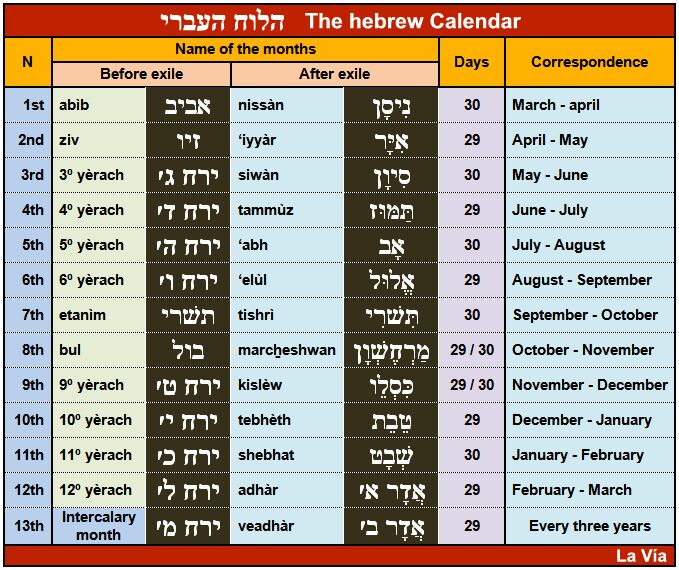Ancient 13-Month Calendar
Ancient 13-Month Calendar - They added eleven extra days at the end of each year. The babylonians developed a calendar with 364 days. The birch moon is a time of rebirth and regeneration. This cycle also forms the basis of the christian ecclesiastical calendar and is used for the computation of the date of easter each year. Web fun facts about ancient and modern calendars for kids. Web the year 1300 is a leap year, with 366 days in total. Web since the lunar calendar was 10 or 11 days shorter than the solar year, a 13th month (called thoth) was intercalated every several years to keep the lunar calendar in rough correspondence with the agricultural seasons and their feasts. Web the first historically attested and formulized calendars date to the bronze age, dependent on the development of writing in the ancient near east. The lunisolar calendar, in which months are lunar but years are solar—that is, are brought into line with the course of the sun—was used in the early civilizations of the whole middle east, except egypt, and in greece. Web the roman calendar is the time reckoning system used in ancient rome. In 2000 ad, victoria, australia, a wurdi youang stone arrangement could date back more than 11,000 years. England and english colonies used a calendar which started on march 25 until year 1751. Web the roman calendar is the time reckoning system used in ancient rome. Web the roman calendar was the calendar used by the roman kingdom and roman republic.. England and english colonies used a calendar which started on march 25 until year 1751. Web the year 1300 is a leap year, with 366 days in total. Web updated on january 28, 2019 be quiet! In fact, ethiopians celebrated the new millennium on september 11, 2007; The lunisolar calendar, in which months are lunar but years are solar—that is,. The resulting calendar had 365 days and each month had 30 to 31 days. Web the year 1300 is a leap year, with 366 days in total. Web celtic tree months. Web fun facts about ancient and modern calendars for kids. England and english colonies used a calendar which started on march 25 until year 1751. The birch moon is a time of rebirth and regeneration. Web since the lunar calendar was 10 or 11 days shorter than the solar year, a 13th month (called thoth) was intercalated every several years to keep the lunar calendar in rough correspondence with the agricultural seasons and their feasts. This cycle also forms the basis of the christian ecclesiastical. Web it is introduced in october 1582 by pope gregory xiii. Web lunisolar calendars, with fixed weekdays, existed in many ancient cultures, with certain holidays always falling on the same dates of the month and days of the week. Web an ethiopian year is comprised of 13 months, and is seven years behind the gregorian calendar. The babylonians developed a. This is not reflected on this calendar. The resulting calendar had 365 days and each month had 30 to 31 days. Each month has a different number of days. Web lunisolar calendars, with fixed weekdays, existed in many ancient cultures, with certain holidays always falling on the same dates of the month and days of the week. The babylonians developed. Web an ethiopian year is comprised of 13 months, and is seven years behind the gregorian calendar. Web according to this correlation, the first date was a day 8 wind, the ninth day of the month quecholli, in a year 1 reed, the 13th year of a cycle. For practical purposes—e.g., for reckoning the commencement of the sabbath—the day begins. The egyptian calendar had 12 months just like the one used in mesopotamia, but they had 5 extra days in their year. Web the year 1300 is a leap year, with 366 days in total. In the gregorian calendar, a year is composed of 12 months. The lunisolar calendar, in which months are lunar but years are solar—that is, are. In the gregorian calendar, a year is composed of 12 months. Web celtic tree months. This is not reflected on this calendar. Web since the lunar calendar was 10 or 11 days shorter than the solar year, a 13th month (called thoth) was intercalated every several years to keep the lunar calendar in rough correspondence with the agricultural seasons and. This is because the ethiopians continued with the same calendar that the roman church amended in 525 ad. They added eleven extra days at the end of each year. Web celtic tree months. Each month has a different number of days. Web the roman calendar is the time reckoning system used in ancient rome. They added eleven extra days at the end of each year. In fact, ethiopians celebrated the new millennium on september 11, 2007; Web it is introduced in october 1582 by pope gregory xiii. Web an ethiopian year is comprised of 13 months, and is seven years behind the gregorian calendar. Web the roman calendar is the time reckoning system used in ancient rome. Web since the lunar calendar was 10 or 11 days shorter than the solar year, a 13th month (called thoth) was intercalated every several years to keep the lunar calendar in rough correspondence with the agricultural seasons and their feasts. Web a maya month or uinal consists of 20 solar days or kins. For practical purposes—e.g., for reckoning the commencement of the sabbath—the day begins at sunset, but the calendar day of 24 hours always begins at 6 pm. The resulting calendar had 365 days and each month had 30 to 31 days. Web the first historically attested and formulized calendars date to the bronze age, dependent on the development of writing in the ancient near east. Julius caesar asked the astronomer sosigenes to create a calendar. Web the year 1300 is a leap year, with 366 days in total. Web celtic tree months. In the national museum of anthropology, mexico city. Web beginning on the fourth sunday before christmas day and leading up to the festivities of december 25, advent is intended to be a time in which we prepare our hearts for the coming of christ. In 2000 ad, victoria, australia, a wurdi youang stone arrangement could date back more than 11,000 years. In the gregorian calendar, a year is composed of 12 months. The egyptian calendar had 12 months just like the one used in mesopotamia, but they had 5 extra days in their year. This is not reflected on this calendar. This is because the ethiopians continued with the same calendar that the roman church amended in 525 ad. The lunisolar calendar, in which months are lunar but years are solar—that is, are brought into line with the course of the sun—was used in the early civilizations of the whole middle east, except egypt, and in greece. Web a maya month or uinal consists of 20 solar days or kins. Web the roman calendar is the time reckoning system used in ancient rome. This cycle also forms the basis of the christian ecclesiastical calendar and is used for the computation of the date of easter each year. The roman calendar is the most perfect yet devised. In 2000 ad, victoria, australia, a wurdi youang stone arrangement could date back more than 11,000 years. However, because the calendar was reformed and adjusted countless times over the centuries, the term essentially denotes a series of evolving calendar systems, whose structures are partly unknown and vary quite a bit. Web an ethiopian year is comprised of 13 months, and is seven years behind the gregorian calendar. For practical purposes—e.g., for reckoning the commencement of the sabbath—the day begins at sunset, but the calendar day of 24 hours always begins at 6 pm. Web it is introduced in october 1582 by pope gregory xiii. Web according to this correlation, the first date was a day 8 wind, the ninth day of the month quecholli, in a year 1 reed, the 13th year of a cycle. The resulting calendar had 365 days and each month had 30 to 31 days. They added eleven extra days at the end of each year. Web since the lunar calendar was 10 or 11 days shorter than the solar year, a 13th month (called thoth) was intercalated every several years to keep the lunar calendar in rough correspondence with the agricultural seasons and their feasts. Web fun facts about ancient and modern calendars for kids. Web lunisolar calendars, with fixed weekdays, existed in many ancient cultures, with certain holidays always falling on the same dates of the month and days of the week.Ancient civilizations calendar how to draw it step by step Google
Celtic Tree Calendar Celtic tree calendar, Celtic calendar, Celtic tree
The Babylonian Crow, page 1
HISTORY of the 13Month, 28Day Calendar calendartruth Calendar
Ancient Egyptian Calendar for 2013 by Thothhotep on DeviantArt
I just attempted to create an Ancient Egyptian calendar. ancientegypt
Thirteen Moon Tutorial Please note, there is serious disagreement as
Celtic Tree Calendar. Image Copyright Ireland Calling. Celtic tree
Beautiful Ogham calendar print showing the 13 months of the year named
Calendar of 13 Months Encyclopedia MDPI
In Fact, Ethiopians Celebrated The New Millennium On September 11, 2007;
This Is Because The Ethiopians Continued With The Same Calendar That The Roman Church Amended In 525 Ad.
For Example, January Has 31 Days, February Has 28 Days, And Sometimes 29, April Has 30 Days, And So On.
Web The First Historically Attested And Formulized Calendars Date To The Bronze Age, Dependent On The Development Of Writing In The Ancient Near East.








